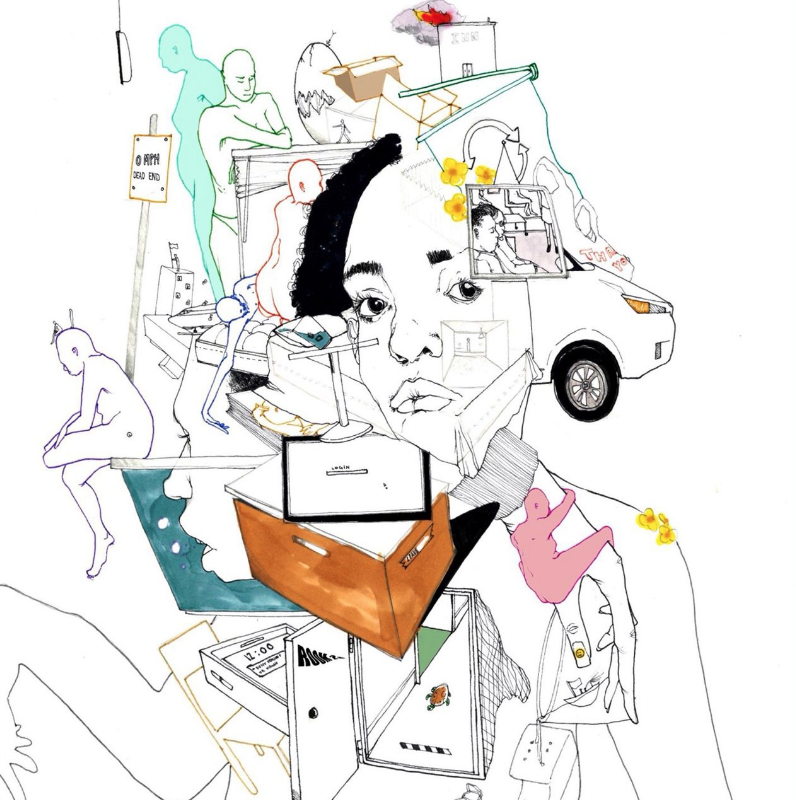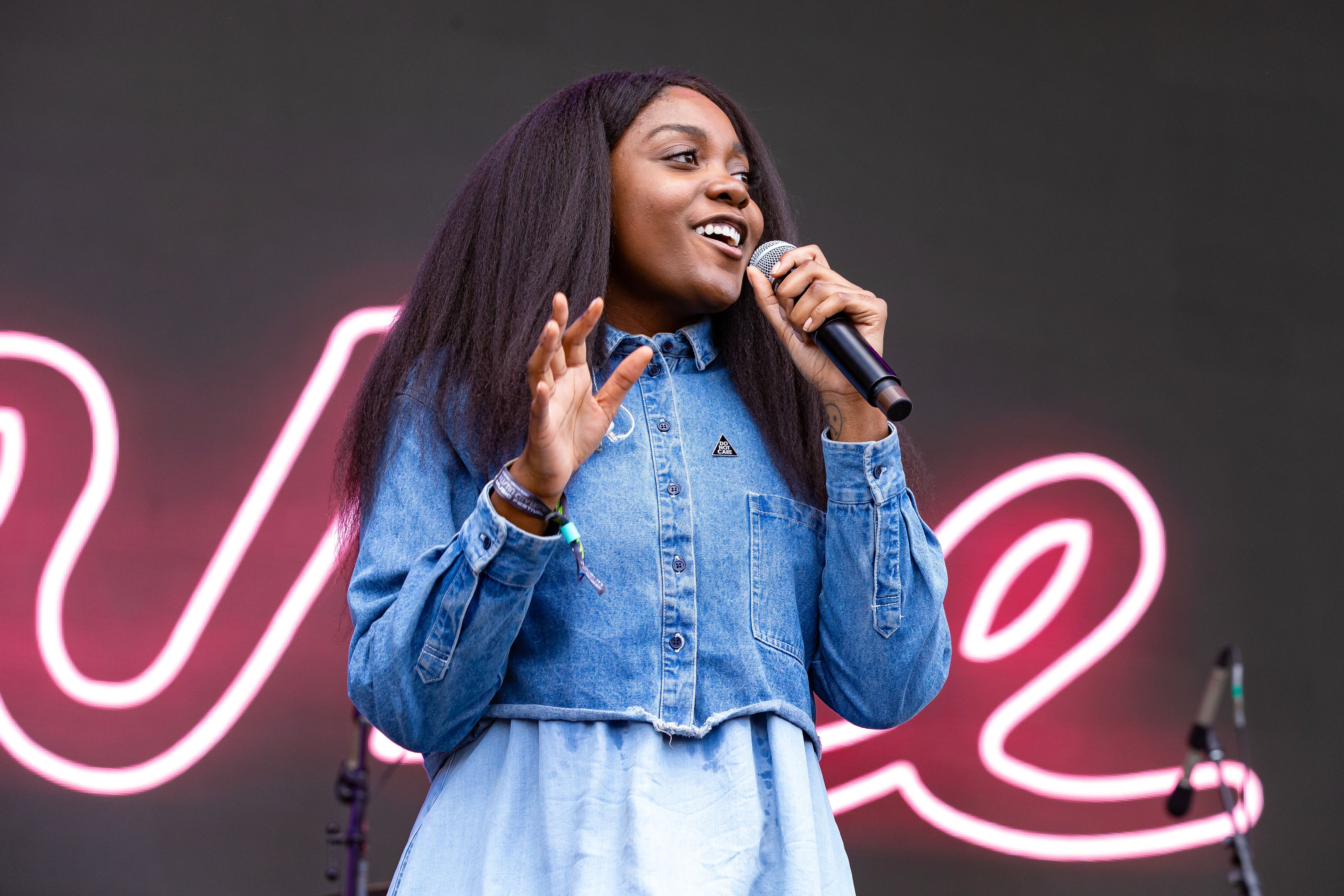Noname’s artistry initially bloomed out of an eclectic Chicago poetry scene that received far less coverage than the once-ubiquitous drill movement. Honing her talent around Chance the Rapper years before he’d cut a deal with one of the world’s largest tech brands, notable team-ups such as appearing on Saturday Night Live’s televised stage only served to boost her profile. Two years after her ambitious debut Telefone, Noname’s sophomore album Room 25 speaks volumes as to how she has blossomed into an unwitting star almost strictly on the merits of her musical gifts.
Generally averse to social media and big spectacles—and without so much as a music video to her name—Noname simply rolled out Room 25 in August with tweets announcing its completion. (She also sat for an interview with the Fader that served as her first real public introduction via the media.) Possibly a reference to reflections that inspired her growth since we last heard from her (she’s just turned 27 at the time of this writing), this latest work is an extension of the aesthetic she formerly perfected with frequent collaborator and multi-instrumentalist Phoelix—a signature airy tone and distinct vocal rhythms that mesh prose and abstract rhyming to highlight her roots in spoken word. She’s most recently referred to this unorthodox style as “lullaby rap.”
The album’s opener “Self” is a feel-good nod to neo-soul and traditionalist hip-hop. Here, Noname goes from musing on how her audience can use her songs in the face of society-borne dread to playfully bragging about her skills. She also foreshadows Room 25’s intimate themes by rapping frankly about sex while sardonically scoffing at stereotypical male fans who view women rappers as carnal objects.
Well-rounded without ever coming off as formulaic, Noname succeeds at introspection while questioning the world around her. Rapping slightly quicker than the spare funky bass line and steady drum tempo of “Blaxploitation,” she flaunts her ability to tackle a number of topics on a whim—sprinting from fast food joint Chick-fil-A’s controversial anti-LGBT stance to gentrification to Hillary Clinton’s pandering to minority communities during her 2016 election run. “Prayer Song” is a dark lamentation on American tragedies not limited to the country’s predisposal to poor health, obsessions with artificial beauty and materialism, and the aftereffects of slavery. It’s a rapid and noisy composition that would normally be better suited for a fiery soul singer. Noname’s juxtaposition is a delivery just a few octaves above whispering, with the second verse told from the twisted perspective of a crooked policeman infatuated with causing urban bloodshed.
As self-assured as she can come across, Noname spends a fair portion of Room 25 giving the audience a deeper look into the all-too-human frailties of her psyche. Though it starts with childlike nursery rhymes that downplay the severity of her turmoil, “Window” tornadoes into a desperate tale of lovesick disappointment (if not full-blown heartbreak). Centered around a lush live string arrangement to accentuate her woes, the song finds Noname overstating her importance to an object of affection. Wrestling with pride as a coping mechanism, she admits, “I know that’s my ego, I know I’m just empty,” before nearly begging for a return on her heart’s investment. The comparably lighthearted and playful Latin jazz inspired “Montego Bae” takes a 180-degree turn as Noname details an erotic rendezvous set in Jamaica. But this newfound empowerment via sexual liberation is cut with insecurity, as she backpedals to position the indulgence as problematic.
Sticking to a “less is more” strategy (Telefone ran just two minutes shorter), Noname leaves little to no room for filler on Room 25, conveying a wide breadth of compelling ideas within 35 minutes. A semi-public figure who nonetheless has chosen to let the music speak for itself, she creates beautiful art from her pain during moments like the despondent “Don’t Forget About Me,” which sheds light on her guilt over leaving Chicago for Los Angeles and personal struggles with substance abuse. Though it can require attention to detail for her words to sink in, she gives off a feeling of effortless and whimsical grace as she speaks from a place of stark honesty over live instrumentation. A complete one-of-one act who continues to grow in real time outside of the limelight, Noname makes a subtle yet strong statement for women providing alternatives to one-dimensional rap archetypes.





